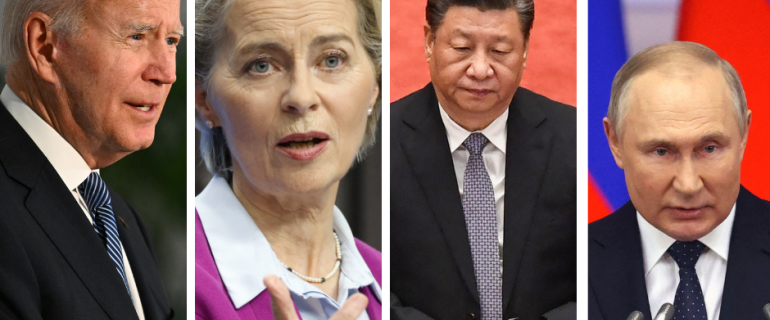The two international summits that have taken place in recent days, in Bavaria and Beijing, give a glimpse of the new world, cut in two.
The summits of the major emerging countries, led by China and Russia, and that of the G7, led by the United States, organized almost simultaneously, are reshaping globalization. Fifteen years ago, we imagined a world board, with the G20, which brought together all the important countries of the planet when it was necessary to fight against the great crisis of 2008. But there are now two hostile camps, even enemies. On one side, America, Europe and their allies. On the other, China and Russia. Impossible not to choose sides in such a tense climate. Sweden and Finland have just renounced their neutrality to join NATO, the Western military organization.
The world is now cut in two, commercial and financial exchanges will reorganize within these two halves, and decrease between one and the other. We can see this phenomenon in the eyes of the multinationals which left Russia at full speed when the Kremlin launched its offensive on Ukraine. It is also so with regard to the gradual distancing between China and the United States, on the technological level, with the sanctions taken against Huawei, and on the financial level, with the prohibition for Chinese companies from going Listed on Wall Street!
Even trade links are dwindling. In 2019, 61% of Western industrial supplies came from China, it is only 47% today. There are specific causes for this, such as health restrictions in the Middle Kingdom, but geopolitics is taking over. There are countless bosses who say they want to reduce their exposure to the Chinese market. It’s a revolution, five years ago, they all wanted to increase it on the contrary.
The “Friendshoring”
The new fashionable term is “friend sharing”, a contraction of “friends” (friends), and “offshoring” (relocation). Locating its establishments among relatives is now the objective. Relatives are therefore more secure, politically, because all countries have experienced dependence in recent years, for masks, semiconductors, and today for energy. They want to protect themselves against this risk. Plants closer geographically are also necessary for environmental reasons. Transportation is reduced by its carbon emissions.
In Europe, we then focus on Eastern Europe, with Romania and Bulgaria, or also North Africa. But above all, we want to settle back home. After having migrated like the storks in China, the factories will return to the West. The heir of the Rothschild family, Nat Rothschild, himself in business, declared to the British daily when America and the USSR faced each other. Telegraph: “The era of Chinese domination over world industry is over”.
Globalization has really changed because for it to exist, you need a single great power, which imposes its law, its uses, its currency, its law, and its culture everywhere on the planet, which facilitates exchanges. But today, America has a challenger: China. In a way,


















